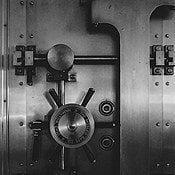Homebuyers often ask what are prepaids in real estate? The simple answer is that prepaids are additional costs a homebuyer pays at the time of closing. These funds are used to create an escrow account that pays for things like property taxes, homeowners insurance, and interest on your new home.
Prepaids only impact those that are using a home loan to make their home purchase. If you are getting a mortgage and have a downpayment of less than 20%, your lender will most likely require that they make your property tax and homeowners insurance payments for you.
Buyers that meet the minimum 20% down payment requirements are usually not required to have their taxes or insurance paid through an escrow account, sometimes called an impound account depending on where you live.
There are some lenders that insist on making these payments. Even when it’s not a lender requirement, it might be a good idea to go ahead and let the lender pay them.
These tax payments are usually due once or twice a year, so the payments are larger and more importantly, the owner needs to remember when they are due. While it costs a bit more for the lender to pay taxes, for many investors, it’s worth it.
As far as homeowners insurance is concerned, the same fundamentals apply. For buyers with a minimum of 20% down payment, the lender may not require that they pay the premiums but letting them pay is not a bad idea.
If you don’t use a mortgage loan and opt to pay cash, you are responsible for paying your own real estate taxes, and there is no requirement for a homeowners policy. Even though a homeowners insurance policy is not required for a cash purchase, having a policy in place is still a really good idea. The policy is not that expensive, and in most cases, the cost of repair or replacement can be financially devastating.
How Does The Escrow Account Work?
 The home buyers or borrower is responsible for funding this account with a portion of the first years worth of insurance premiums and taxes. The lender or loan servicer uses this account to make these payments as they are due.
The home buyers or borrower is responsible for funding this account with a portion of the first years worth of insurance premiums and taxes. The lender or loan servicer uses this account to make these payments as they are due.
An escrow account for taxes and insurance will be set up for you whether you prepare for closing with an escrow service versus a title company. After this initial account is set up, starting with your first payment small portion from each of your monthly payments goes back into this account to fund future tax and insurance liabilities. This cycle continues until the loan is paid off or you sell the home.
How Do I Know How Much To Pay?
When you make a mortgage application your mortgage lender should provide you with something called a loan estimate, this document used to be called a Good Faith Estimate.
The loan estimate document will break down and disclose any fees or costs associated with the loan portion of the real estate transaction. This loan estimate should also provide a detailed estimated breakdown of what your prepaid costs will be based on your loan amount. Lenders are required to provide this document within 3 days of the loan application.
The estimation for taxes is based on the most recent mill levy and assessment. Additionally, your lender will estimate any insurance premiums in order to come up with a realistic amount to fund the escrow account. These are just estimates, and the numbers will change over time.
There is another disclosure form lenders are required to provide to the home buyers prior to closing, this is called the closing disclosure. The borrower should receive the closing disclosure 3 days prior to closing. This disclosure should reflect the same numbers as the loan estimate.
Occasionally the home buyer will opt to purchase a more expensive homeowners insurance policy than the one used by the lender to calculate the initial loan disclosure numbers, this is an example of where the numbers between the loan estimate and the closing disclosure might be different.
Let’s take a more detailed look at the prepaid items that are covered by your initial escrow payment.
Homeowners Insurance Policy
The homeowner’s insurance coverage is the first prepaid fee we will take a look at. This policy is something the buyer can shop around for, which does allow for some control over cost. Depending on the insurance company and the type of coverage, the cost of homeowners or hazard insurance can vary greatly.
Because the homeowner’s insurance premium is one of the upfront costs, the lender will require the full year of premiums. They are also going to require that an additional 2 to 3 months of payments go into this account for the upcoming year’s payment.
The additional 2 or 3 payments start building the account up for next year’s payment. Beginning with your first mortgage payment, a small amount is also taken out of each of your monthly mortgage payments. This money goes into the escrow account for next year’s insurance payment.
Prepaid Mortgage Interest
Your first monthly mortgage payment won’t be due until after the first of the following month after you close. While this is a nice break, the lender still wants their interest for the time you will be living in the house. This mortgage interest payment is considered a pre-paid item and is paid at the time of closing.
The amount of interest you will owe depends on the number of days left in the month after you close. Let’s say you close on the 26th day of a 30 day month. You will need to pay the interest through the last day of the month. This means the buyer would be responsible for 5 days of interest.
Unlike property taxes and insurance, the prepaid mortgage interest portion of your prepaids are a one-time payment. The easiest way to minimize prepaid interest is to close as close to the end of the month as possible. This is something real estate agents can coordinate when they draw up your contract.
Property Taxes
 Property tax payments are also handled through the escrow account. Unlike insurance, you pay your property taxes for the time you have lived in the house. The previous year’s taxes are not due until the next calendar year.
Property tax payments are also handled through the escrow account. Unlike insurance, you pay your property taxes for the time you have lived in the house. The previous year’s taxes are not due until the next calendar year.
The seller will be responsible for the current year’s taxes from January 1, through the day before closing. The buyer is responsible for taxes from the closing date forward.
At closing, the buyer is credited the seller’s portion of the current year’s tax liability. At the same time, the lender is setting up and funding the buyer’s escrow account from which to pay future property taxes.
The amount that goes into this fund varies depending on the time of year, the lender may require from 2 to 9 months of taxes.
Taxes, insurance, and interest are the extent of what prepaids cover. There are other costs associated with the purchase of a home as well as the process if obtaining a loan. Those costs fall into different categories that are not defined as prepaids. Even experienced homebuyers get confused about what category these additional expenses fall into.
Let’s look at the other two categories these expenses can fall into, closing costs and out-of-pocket expenses.
Closing Costs and Out of Pocket Costs
Closing costs and out-of-pocket expenses are the two additional expense categories a homebuyer needs to be aware of. The difference is that these fees have some flexibility where prepaids don’t. 
Prepaids aren’t negotiable, for example, taxes are fixed costs and due to insurance industry regulation, coverage and premiums are fairly consistent for provider to provider.
There is some room for shopping and negotiation when it comes to closing costs, and out-of-pocket expenses. Let’s take a quick look at Closing costs and out-of-pocket expenses.
Closing Costs are fees that are related to the cost of obtaining a loan while out-of-pocket expenses pertain to things like inspections, appraisal, downpayment, and fees. Closing costs consist of fees like the appraisal fee, credit report, recording costs, discount points, the title companies fees, and any upfront lender fees. While there is not a ton of flexibility in these fees, there are some opportunities to save a little money.
Out of Pocket expenses offer the most flexibility in terms of cost. These fees include things like Downpayment, Inspections, and Earnest Money. Depending on the market, a buyer can negotiate items like earnest money, and shop around for inspectors with lower fees.
The savings realized here won’t be huge but when you’re buying a house, every little bit helps.
In Conclusion
There are a lot of moving parts associated with the process of buying a home and the financial obligations tend to be the most confusing and stressful. Understanding what these fees are for and when you will need to pay helps eliminate the surprises that cause stress and confusion.
If you are buying a home it’s important to do your homework and have your financial ducks in a row. Meeting with a trusted Realtor, and Mortgage lender are a great way to start. These professionals can help you get a plan in place before you start the actual home search and closing process.
This type of pre-planning really pays off when you are buying a home, remember that surprises in the home buying process are usually a bad thing. So, look to eliminate surprises by understanding what costs and fees you should expect during the home buying process.

